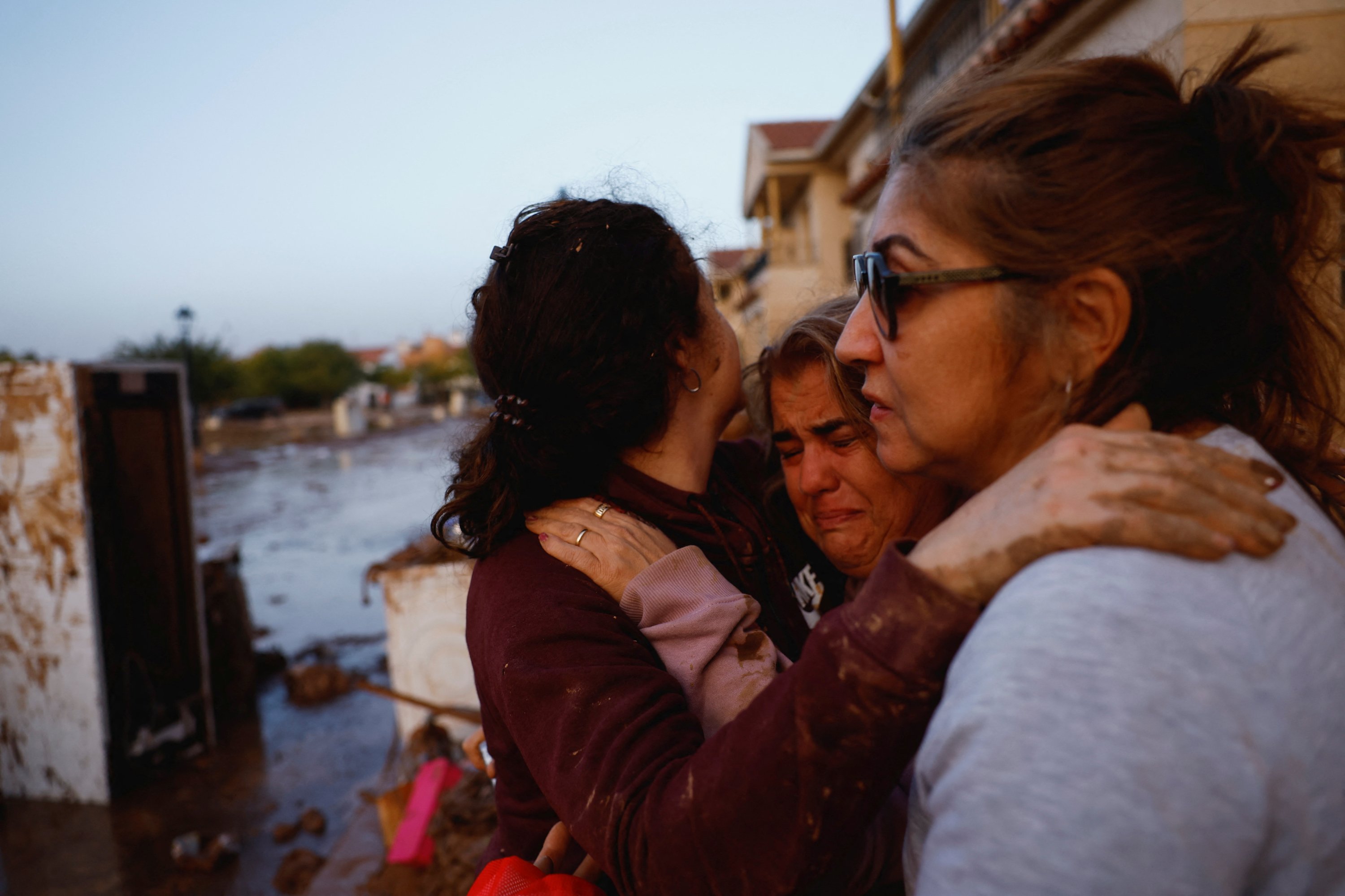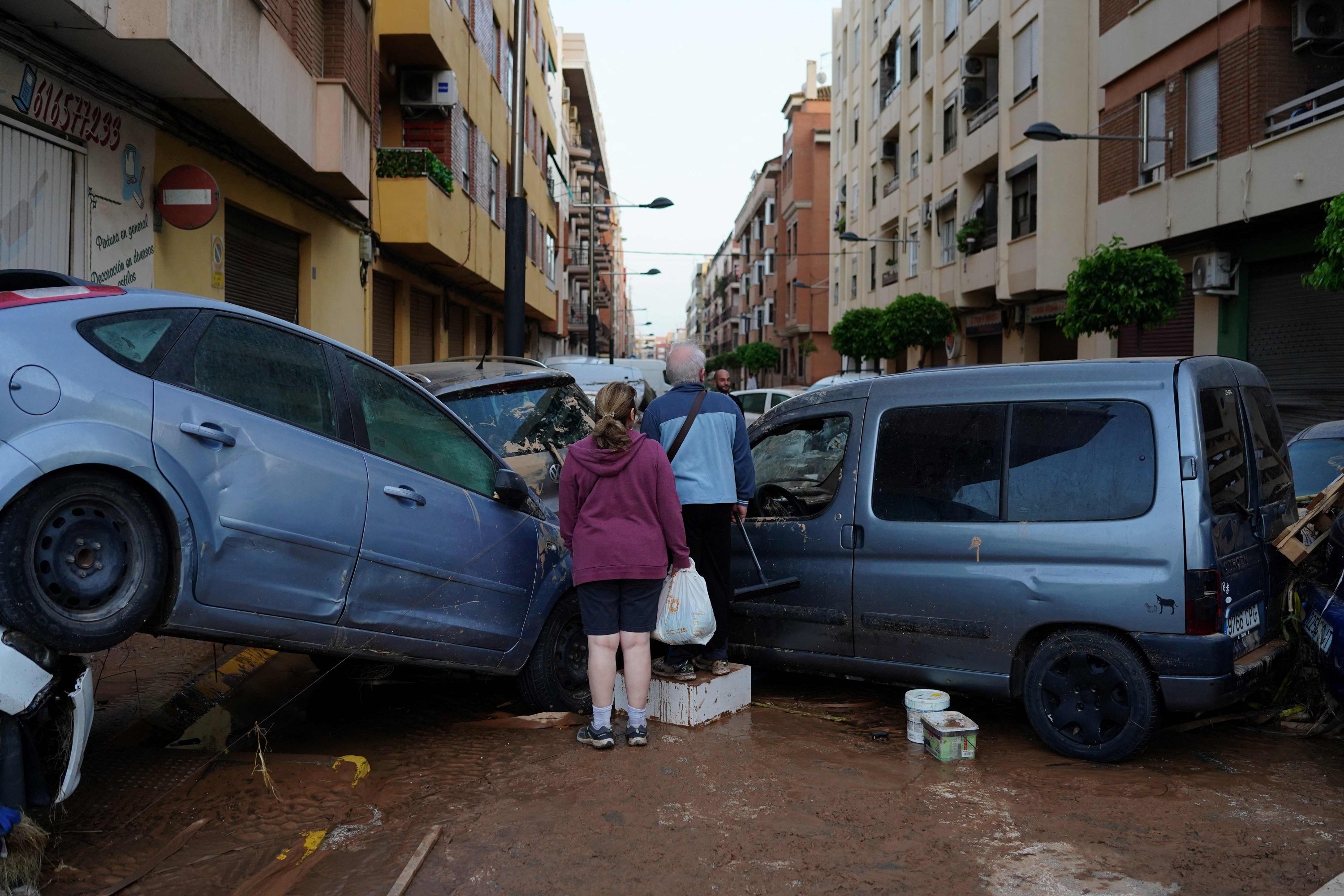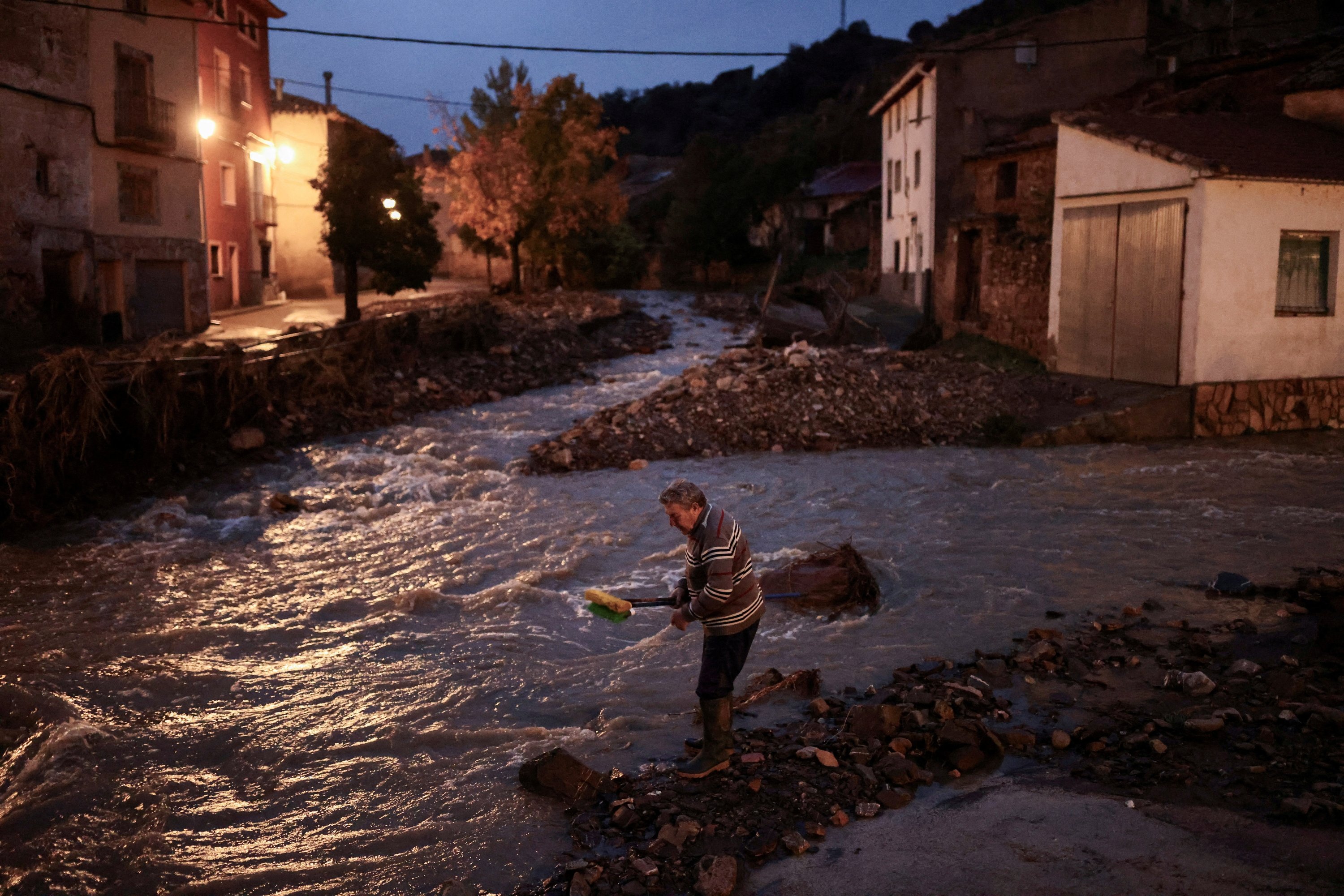Spain scrambles to save flood victims as death toll climbs to 95

Rescuers in Spain scrambled to find survivors Thursday as the death toll from catastrophic floods climbed to at least 95 while towns were left submerged in mud and streets littered with overturned cars.
About 1,000 troops joined police and firefighters in the grim search for bodies in the Valencia region as Spain started three days of mourning. The toll will rise because “there are many missing people,” territorial policy minister, Angel Victor Torres, predicted late Wednesday.
Up to a year’s rain fell in a few hours on the eastern city of Valencia and the surrounding region Tuesday, sending torrents of water and mud through towns and cities.
Authorities said Paiporta, in the Valencia suburbs, had been devastated with about 40 people dead, including a mother and baby swept away by a torrent.
Rescuers have scrambled to get survivors off roofs with helicopters while others have searched houses some with water up to their necks.
As dawn rose Thursday, tens of thousands of homes were still without electricity and drinking water and many roads were blocked by the carcasses of hundreds of cars and trucks swept away in sudden torrents.
Emergency services carried out 200 rescues on the ground and 70 aerial evacuations on Wednesday, said Valencia regional government chief Carlos Mazon.
Valencia’s emergency services announced a provisional death toll of 92, adding that bodies were still being recovered. Two people died in neighboring Castilla-La Mancha and another victim was reported in Andalusia in the south, officials said.
A sea of piled-up cars and mud swamped streets in Sedavi, a suburb of the Mediterranean city of Valencia, reported the Agence France-Presse (AFP).
Stunned residents battled to clear sludge and water from their homes.

‘Spain weeps’
In Ribarroja del Turia on the outskirts of Valencia city, town councilor Esther Gomez said workers were stuck overnight in an industrial estate “without a chance of rescuing them” as streams overflowed.
“It had been a long time since this happened and we’re scared,” she told AFP.
According to Spain’s weather service AEMET, Chiva, west of Valencia, recorded 491 millimeters of rain in just eight hours on Tuesday – almost equaling a year’s worth.
“All of Spain weeps with all of you … We won’t abandon you,” Prime Minister Pedro Sanchez told victims and their families in a televised address.
Sanchez was to head for Valencia on Thursday.
The disaster could not be considered over and “we will deploy all the necessary resources for as long as necessary so that we can recover from this tragedy,” he added.
King Felipe VI said he was “devastated” by the disaster and offered “heartfelt condolences” to the families of the victims.
Damage to telephone networks and flooded roads hampered efforts to reach stricken communities but rescuers’ access to all urban hubs was restored by Wednesday evening, Mazon said.
Some 155,000 homes were without electricity in the Valencia region due to the storm, energy company Iberdrola said.
The European Union activated its Copernicus satellite system to help coordinate Spanish rescue teams, EU commission chief Ursula von der Leyen said in Brussels.
The bloc has also offered to use its civil protection mechanism to send further reinforcements, she said.
Warning system scrutinized
Officials in the Valencia region announced survivors were being sheltered in temporary accommodation such as fire stations.
Rail and air transport remained severely disrupted. The high-speed line between Valencia and Madrid will be suspended for at least four days, the Adif rail infrastructure authority announced.
The flood toll is Spain’s deadliest since 1973 when at least 150 people were estimated to have died in the southeastern provinces of Granada, Murcia and Almeria.
Scientists have warned that extreme weather events, such as the storm that hit Valencia, are becoming more intense, lasting longer, and occurring more frequently due to human-induced climate change.
Such extremes “can overwhelm the ability of existing defenses and contingency plans to cope, even in a relatively wealthy country like Spain,” said Leslie Mabon, senior lecturer in environmental systems at Britain’s Open University.
Hannah Cloke, a hydrology professor at the University of Reading, said the heavy death toll came after warnings for extreme rainfall, suggesting Valencia’s flood alert system failed.




